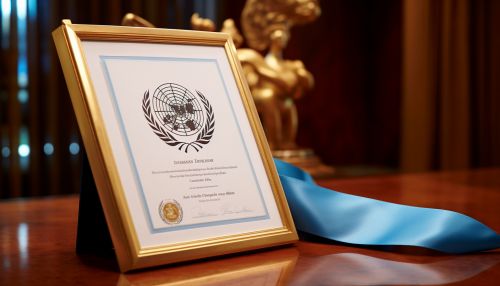Charter of the United Nations
Origins and History
The United Nations Charter is the foundational treaty of the international organization known as the United Nations. The Charter was signed on 26 June 1945, in San Francisco, at the conclusion of the United Nations Conference on International Organization, and came into force on 24 October 1945. The Charter has been amended three times in 1965, 1968, and 1973.


Structure and Content
The Charter consists of a preamble and a series of articles grouped into chapters. The preamble sets out the ideals that the signatory countries (also referred to as Member States) wish to achieve. The articles, which are divided into chapters, articulate the specific legal obligations.
Preamble
The preamble of the Charter sets out the key principles and purposes of the United Nations. It begins with the words "We the peoples of the United Nations determined..." and outlines the broad goals of the organization, including the maintenance of international peace and security, the development of friendly relations among nations, and the achievement of international cooperation in solving international problems.
Chapters
The Charter is divided into 19 chapters, each dealing with a specific topic. These range from the purposes and principles of the UN (Chapter I), to membership (Chapter II), and organs of the UN (Chapters III to XV). The remaining chapters cover administrative issues and the ratification and amendment of the Charter.
Key Principles
The Charter sets out a number of key principles that guide the work of the United Nations. These include the sovereign equality of all its Member States, the fulfillment of obligations under the Charter in good faith, the settlement of international disputes by peaceful means, and the prohibition of the threat or use of force.
Impact and Significance
The Charter of the United Nations has had a profound impact on international law and the conduct of international relations. It has established the United Nations as the central institution for the maintenance of international peace and security, and has provided a framework for the development of international law in areas such as human rights, international economic relations, and the law of the sea.
Criticisms and Controversies
Despite its significance, the Charter has also been the subject of criticism. Some critics argue that the Charter's principles of sovereignty and non-intervention are outdated in the face of global challenges such as climate change and transnational terrorism. Others contend that the structure of the UN, particularly the Security Council, is undemocratic and unrepresentative of the international community.
